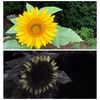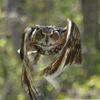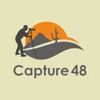35 mm Film Negatives to Digitize: How can I first screen them?
Apr 1, 2016 17:34:24 #
Dear All,
After I move back to my home state around the end of this year, I plan to purchase a Digital Slide Scanner that can also scan photo negatives, with a dpi resolution on the order of a few thousand. Please challenge me on anything I state hereon in this post that you sincerely believe is incorrect.
A. Am I correct in assuming that the IQ of a digitized intact photo negative (assuming a minimum dpi of, say, 3500,) would be superior to that of the accompanying photo print (which would be scanned at 600 dpi)? What if the scanner resolution for photo negatives is 5000 or 7500 dpi? Assuming that the original photo prints, on average, are ~3" x 5", how much better would the scan of the negative be compared to a 600 dpi scan of a print?
B. I realize the above questions are a bit simplistic. Just how important is the color bit depth of such a slide and negative scanner?
Depending upon the answers to the preceding, I might want to scan the negatives instead of the prints whenever I have a choice. I know I have far more prints than original negatives, though.
C. I find it difficult to hold up a color film negative and discern anything more than whether people are in it. Does anyone know of a means to quickly scan/convert negatives (even at low resolution) in order to screen them, i.e. determine which negatives are worth digitizing?
Thank you,
lev29
After I move back to my home state around the end of this year, I plan to purchase a Digital Slide Scanner that can also scan photo negatives, with a dpi resolution on the order of a few thousand. Please challenge me on anything I state hereon in this post that you sincerely believe is incorrect.
A. Am I correct in assuming that the IQ of a digitized intact photo negative (assuming a minimum dpi of, say, 3500,) would be superior to that of the accompanying photo print (which would be scanned at 600 dpi)? What if the scanner resolution for photo negatives is 5000 or 7500 dpi? Assuming that the original photo prints, on average, are ~3" x 5", how much better would the scan of the negative be compared to a 600 dpi scan of a print?
B. I realize the above questions are a bit simplistic. Just how important is the color bit depth of such a slide and negative scanner?
Depending upon the answers to the preceding, I might want to scan the negatives instead of the prints whenever I have a choice. I know I have far more prints than original negatives, though.
C. I find it difficult to hold up a color film negative and discern anything more than whether people are in it. Does anyone know of a means to quickly scan/convert negatives (even at low resolution) in order to screen them, i.e. determine which negatives are worth digitizing?
Thank you,
lev29
Apr 2, 2016 05:47:48 #
daplight
Loc: Kansas
I will be watching the responses/suggestions here as well. I don't have a scanner yet worthy of this task. On 'screening' the negs, maybe do it like when we were doing darkroom work? Specifically, a light box and a loupe. Seems this method might be a way to sort the 'wheat from the chaff,' so to speak.
Apr 2, 2016 06:15:20 #
Can't give you a specific answer to question A. You're correct in that a negative scanned will produce a better result than a scanned print.
I use a Plustek 8200 purchased from B&H a couple years ago. It isn't cheap but does an outstanding job. I think it will do 9600 dpi. What I like about the software is I can do a "prescan", crop, color correct, discard, or scan to a final product. It will do both negatives & slides but, it is 35mm only.
I use a Plustek 8200 purchased from B&H a couple years ago. It isn't cheap but does an outstanding job. I think it will do 9600 dpi. What I like about the software is I can do a "prescan", crop, color correct, discard, or scan to a final product. It will do both negatives & slides but, it is 35mm only.
Apr 2, 2016 06:23:16 #
lev29 wrote:
... I plan to purchase a Digital Slide Scanner that can also scan photo negatives, with a dpi resolution on the order of a few thousand. ...
Although a digital film scanner can scan at a very high dpi, you should start with a more affordable flatbed scanner like one of the Epson models.
The best optical resolution you can expect from a flatbed scanner is about 2400 dpi. Epson claims to reach 6400 dpi but independent test don't support that. But 2400 dpi enough to see the grain in a Tri-X negative and probably good enough for any slides or negatives you currently have.
Consider the Epson Perfection V550 at about $160 to start with. Prices climb quickly from there.
Apr 2, 2016 06:28:15 #
selmslie wrote:
Although a digital film scanner can scan at a very... (show quote)
I agree with selmslie. I started with a Microtek Scanmaker 600 which had slide/negative scanning capability. The scans were very good at 2400dpi. The slide scanner unit light quit so, I purchased the Plustek. Otherwise would have kept going with the Microtek. The V550 gets very good reviews.
Apr 2, 2016 07:20:13 #
hj
Loc: Florida
Regarding your question C..... Google Wolverine scanners as they scan very quickly - about 4 to 5 seconds each. The scans I achieved were totally satisfactory for me not to go any further as I use the scans only for computer viewing and to send to family and friends.
If you just want to sort use something like this. I had one and it allowed me to quickly decide which slides I wanted to digitize.
http://www.amazon.com/Logan-Folding-Sorter-Slides-750485/dp/B00009V39N/ref=sr_1_1?ie=UTF8&qid=1459596723&sr=8-1&keywords=slide+sorter
If you just want to sort use something like this. I had one and it allowed me to quickly decide which slides I wanted to digitize.
http://www.amazon.com/Logan-Folding-Sorter-Slides-750485/dp/B00009V39N/ref=sr_1_1?ie=UTF8&qid=1459596723&sr=8-1&keywords=slide+sorter
Apr 2, 2016 07:24:46 #
This is an interesting thread to me, too, as I've been considering buying this to digitize all the slides and negatives my dad left when he died 18 months ago. Any comments about it are welcome. I wasn't looking when it showed up in an email ad but it got me thinking that I need to take care of all the family photos that would otherwise be lost forever. I haven't researched other options yet.
http://www.sharperimage.com/si/view/product/Rapid+Slide+and+Negative+Converter/204316?question=digitizing%20negatives%20and%20slides
As for viewing the negatives I'd suggest a sheet of plexiglass or glass with a light source behind it. He used something like that although I can't remember exactly what. I'd probably need a magnifying glass, too!
http://www.sharperimage.com/si/view/product/Rapid+Slide+and+Negative+Converter/204316?question=digitizing%20negatives%20and%20slides
As for viewing the negatives I'd suggest a sheet of plexiglass or glass with a light source behind it. He used something like that although I can't remember exactly what. I'd probably need a magnifying glass, too!
Apr 2, 2016 07:34:35 #
hj wrote:
Regarding your question C..... Google Wolverine scanners as they scan very quickly - about 4 to 5 seconds each. The scans I achieved were totally satisfactory for me not to go any further as I use the scans only for computer viewing and to send to family and friends.
Hmmmm......they look great! Glad you posted this. Thanks.
Apr 2, 2016 07:37:27 #
lev29 wrote:
Dear All, br br After I move back to my home stat... (show quote)
I just googled the Wolverine scanner mentioned. Did you see this part?
"By connecting a cable to your TV and the TV out jack located on the back of the converter, you can view your images on your TV. The connection cable is not included, but you can buy it separately from Wolverine. If you prefer to use a computer to view and organize your photos, you can transfer the digital images to a PC or MAC. Uploading your photos is simple. You do not need to install any software or drivers just plug in the device and you are ready to go."
Apr 2, 2016 07:48:49 #
lev29 wrote:
Dear All, br br After I move back to my home stat... (show quote)
There was a discussion this yesterday, take a look at this thread I think they were talking about slides and negatives. http://www.uglyhedgehog.com/t-379084-1.html
Apr 2, 2016 09:17:09 #
Scanning the negative is always better than scanning the print. I don't want to go into details explanation but if you need to know PM me.
Most scanner has preview mode which scan quickly so you can see what you have.
If you decided not the scan prints it's better to have a film scanner than a flat bed.
The important thing is that you must do it yourself. The lab won't do it to your liking. You could ended up with prints that are better than prints made years ago.
Most scanner has preview mode which scan quickly so you can see what you have.
If you decided not the scan prints it's better to have a film scanner than a flat bed.
The important thing is that you must do it yourself. The lab won't do it to your liking. You could ended up with prints that are better than prints made years ago.
Apr 2, 2016 09:23:26 #
hj wrote:
..... Google Wolverine scanners as they scan very quickly - about 4 to 5 seconds each. The scans I achieved were totally satisfactory for me not to go any further as I use the scans only for computer viewing and to send to family and friends. ...
Unless you are in a hurry, stay away from the off-brand scanners like Wolverine and Rapid Slide and Negative Converter. Fast scans are usually low resolution and poor quality and the asking price is close to the Epson I recommended earlier.
To save time, be selective in what you scan. It is better to get a few proper scans than to do a poor job on a large volume.
Apr 2, 2016 09:29:23 #
I have been scanning my Dad's stuff as well, just finished several hundred family shots. I have been using Canoscan 9000F with a Logan led P Frame 8x10 (B&H $89) to look at the slides & negatives. For negatives, buying an extra holder really speeds up the process. Not perfect, but very good.
Apr 2, 2016 11:01:05 #
ION has an inexpensive scanner with several different brackets, one for several slides, one for negatives, etc. Not good enough to do quality scanning but there is a small screen that will instantly show you positives of your negatives - no scanning necessary to do this. I suspect there are other even less expensive negative-to-positive viewers out there that don't have any scanning capability.
Apr 2, 2016 12:13:31 #
Capture48 wrote:
Thank you for remembering the concept of prior, possibly relevant, MPD's at UHH. I did review it and found the majority of the thread to be my non-contributory to my interests, hence I posted this topic. I've been following this topic item for the past few months and while my memory is not perfect, none has quite revealed what I wanted to know. :-DThere was a discussion this yesterday, take a look at this thread I think they were talking about slides and negatives ...
If you want to reply, then register here. Registration is free and your account is created instantly, so you can post right away.






